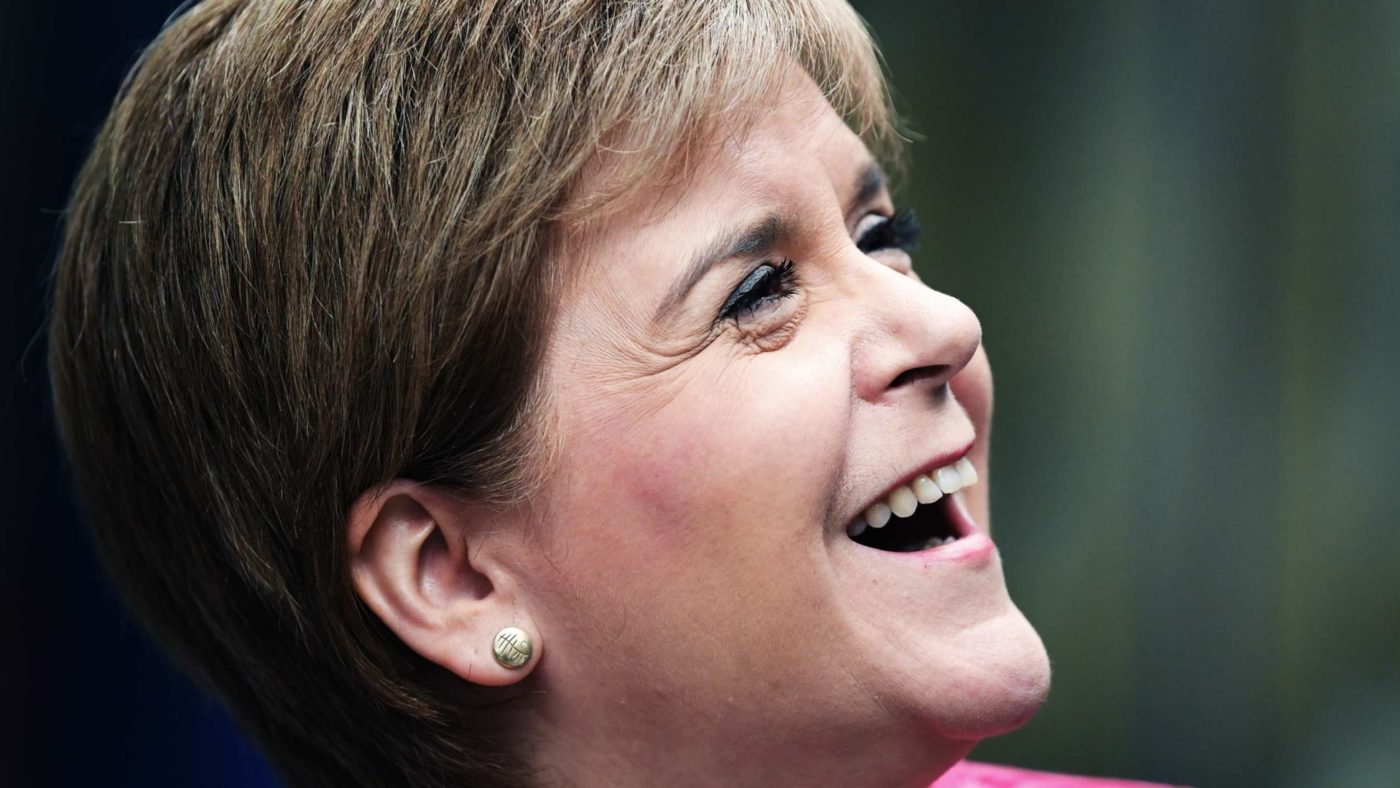It’s proving rather complicated, this Union thing, isn’t it? It was complicated enough when us Scots voted on independence to a mixed southern chorus of “please don’t go!” and “good riddance!”
It’s only got more tangled since, with Brexit bringing the future of Northern Ireland into doubt. If the English can find a way to provoke the Welsh, they’ll have the full set.
Of course, in Scotland the independence debate has carried on at full tilt since 2014, with the SNP treating the referendum result as a childish misjudgement on the voters’ part. The decision to leave the EU (Scots voted 62-38 for Remain) gave Nicola Sturgeon the opportunity – or, less kindly, the fig leaf – she needed to press for a second referendum before the decade’s out.
Looked at dispassionately, the urgency to go again so quickly is verging on an affront to democracy. But nothing is dispassionate in Scotland when it comes to the survival or otherwise of the Union.
Would the debate be any different second time around? Would it be less divisive, less antagonistic, more edifying? Would there be more light than heat? Well, perhaps and perhaps not.
First, let’s give the SNP and Sturgeon due credit. She is a marked improvement on Alex Salmond, her predecessor as First Minister, using the job to pursue a broadly social-democratic policy programme. She has been brave enough to use Holyrood’s new tax powers to create a distinctive Scottish system of bands and rates. She has set in train some longer-term economic gambles, such as the creation of a National Investment Bank and a publicly-owned energy company. She has engaged at a more tangible level, introducing the Baby Box for new parents, and the First Minister’s Reading Challenge to encourage bookishness among primary-age kids.
Potentially of most significance, in 2016 she set up a Growth Commission to look at how Scotland, both in its devolved form and as an independent state, might improve its lackadaisical economic performance. The Commission’s 300-page report — much-delayed by the stormy political weather – will be unveiled on Friday.
Already, the skirmishing has begun. The First Minister took to the TV screens at the weekend for a bit of pitch-rolling, insisting the report was “an important moment” and would “restart a debate about why independence for Scotland is an opportunity and what those opportunities are”. It would be a debate based on “ambition and hope”, which she contrasted with the “damage and despair” caused by Brexit.
The Commission has attempted to plug the holes in the economic case for independence made in 2014. It will address the thorny issue of which currency would be used, as well as how a projected £13 billion deficit would be reduced. It is, of course, a means to an end. “Once we get some clarity, which hopefully we will in the autumn, about the Brexit outcome and the future relationship between the UK and the EU then I will consider again this question of the timing of an independence referendum,” says Sturgeon.
What will it all amount to? Will the Commission do anything other than comfort the already-convinced and confirm the doubts of the naysayers? Is it possible for there to be a measured consideration of its proposals?
It is, genuinely and wearyingly, impossible to see anything other than more of the same. Already, the social media war has begun, with the Scottish Tories tweeting: “Give it a rest, Nicola. We want better schools and hospitals, not #indyref2“. The First Minister responded directly: “Says the party obsessed with Brexit and whose leader is speaking today at an event called ‘The Union and Unionism’. Tories’ objection is not to a debate about the constitution — their objection is to a debate in which the independence case is heard.”
In truth, she has a point, and Unionists can’t have it both ways – for all Ruth Davidson’s complaints about the SNP’s constitutional fixation, her own party has surfed the same wave to electoral success. The event Sturgeon referred to, held by the think tank Policy Exchange, included not just Davidson but also Alistair Darling, Jim Murphy and Michael Gove. Getting the band back together, you might say, but with the addition of DUP leader Arlene Foster.
This is where the debate over Britain’s future promises has acquired a new edge: Northern Ireland is now part of the conversation. The UK Government’s stumbling attempts to find a deal on the Irish border have reawakened old fears and arguments on that island.
The question of the Union this time is about more than whether the whingeing Jocks are finally going to put up or shut up. It’s about more than who can afford what. It’s also about whether the structure of our country can bear the pressure Brexit is placing on it. It’s about whether the English determination to achieve “freedom” at what seems to be any constitutional, economic and diplomatic cost, with little regard for the desires of the rest of us, is tolerable. It’s about autonomy versus the compromises and limits of shared power.
Complicated? We’ve barely even begun.


